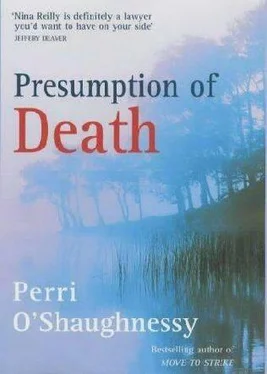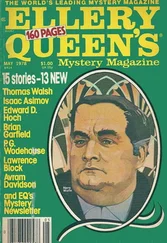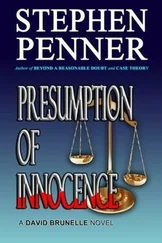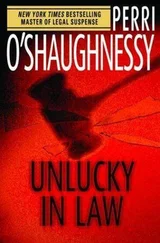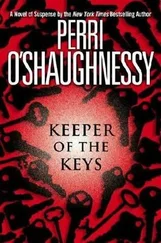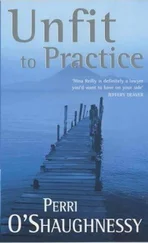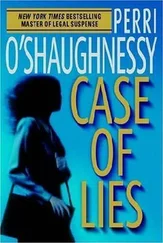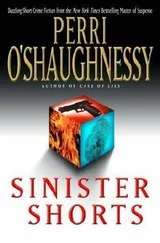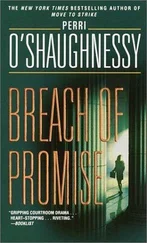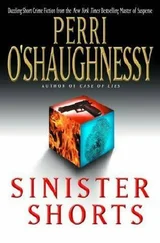“I’m starting to like this lady philosopher. Keep going.”
“‘TEN. The stock market panics when the unemployment rate goes down. The system relies on workers’ misery.’
“‘ELEVEN. Divorce is encouraged because it leads to small households, which benefits consumerism. The ideal is for each person to buy a house, furnish it, duplicate everything. Extended families are discouraged because they share resources.’
“‘TWELVE. New products are mostly old products we already have. Unnecessary refinements are added so we’ll throw away the old and bring in the new.’ There’s one more. It says, in caps again, ‘CONCLUSION:’-” Nina stopped.
“Well, what’s the conclusion? I’m dying to hear it,” Paul said, eyes on the road as he took a sharp curve.
“That’s it. She stops right there. Actually, she wrote something, but it’s crossed out.”
“Can you make it out?”
“No, she put x ’s through it and then squiggles.”
“I’m going to have to ask her,” Paul said. “I can’t stand the suspense.”
“Are you making fun of her?”
“She could use a good editor.”
“She’s half pathetic and half brilliant,” Nina said. “A seeker. I notice she doesn’t mention love anywhere.”
“She’s a political philosopher. Like Tina Turner. ‘What’s love got to do with it-’ ”
Paul changed lanes. He looked dashing in his sunglasses. Nina leaned over and kissed his cheek. She said in his ear, “What did you think of her theory that men like to be passive in bed?”
“I would debate that with her anytime, anyplace,” Paul said. “Anyway. She’s a crackpot.”
“Can I keep the Twelve Points? Someday they might be worth something, like Ayn Rand’s manuscripts.”
“Be my guest.” They came to the turning lane for the Mid-Valley Safeway. Paul went on, “An overwhelming urge has come over me. To insatiably consume some unnecessary things.”
“What things?”
“Paper towels. Rug cleaner. Some blueberries for my breakfast and some steak for my dinner, since you will be partying and I have to eat alone.”
“Go for it,” Nina said. “I’ll stay in the car with Hitchcock.” While she waited, she read over the Twelve Points again. “What do you think, Hitchcock?”
But Hitchcock, uninterested in these all-too-human epiphanies, was asleep.
“B EN?” NINA KNOCKED AGAIN ON THE door of the old bungalow on Siesta Court.
It was quarter to six on this long summery Saturday afternoon. She could hear the stream flowing behind the riprap wall and smell the inimitable pungency of charcoal lighter fluid mixed with animal fat. The party must already be starting two doors down at the Puglias’.
She felt like a narc. Paul did it all the time, but she wasn’t sure she could carry this off. Again, she mentally counted the houses on the street: David and Britta Cowan in the big house on her left on the corner, Ben’s door right in front of her, Darryl and Tory Eubanks’s roof past a fine fir tree on the right, and past that, the Puglias, then Ted and Megan Ballard, and finally the Hills. She could hear kids screaming somewhere and the thought came, maybe one of them was a kid, arsonists are often young.
Ben opened the screen. “You’re early.”
“I love a good party.” She went into the dim low-ceilinged living room with its tweed couch and shook hands with Ben, who wore a black T-shirt and jeans. Condolence cards lay on the coffee table where they had been tossed. Someone had brought a huge flower arrangement, which still sat by the door.
He didn’t smile, and his eyes still had the puzzled, hurt look that comes with the shock of sudden death. Though he couldn’t be older than his early thirties, Ben’s face was lined and the tops of his ears were red as if from a permanent sunburn. She imagined he worked outside at least some of his day at Valley European Motors. None of this made him any less attractive. “Thanks for letting me tag along,” she said.
Ben sat down and said, “Anything, if it helps you find the killer of my nephew. I can’t sleep at night. He died so young, and while he was in my care. He played the flute. See it there, on the table?” The black flute case lay half-buried by the flowers like a miniature casket. “Danny’s flute,” he repeated, shaking his head.
“We have the same goal in mind,” Nina said, sitting down beside him. “I know my friend Wish didn’t set any fires, so I don’t see how Danny could be involved.”
“What is Wish to you?” Ben asked. She apologized mentally to Paul, because she couldn’t help enjoying sitting next to him. He had warm brown eyes in a smooth face in which she glimpsed the sun-drenched walls of a Yucatán pyramid.
“He worked for me. He helped with my law-office work at Tahoe. His mother is-was-my legal secretary.”
“Why are you here instead of at Tahoe? Is that why Wish was down here, too?”
“That’s a long, irrelevant story, Ben.”
He accepted this. In his soft voice he said, “We buried Danny this morning at the Catholic cemetery in Monterey. He was sort of Catholic. I said some things.”
“Who came to the cemetery?”
“My brother and his wife-Danny’s parents-came down from Tahoe, but they had to get back to work and they left right after. A couple of his cousins came too, and my sister and her husband. We decided to keep it small, even though some of the neighbor ladies wanted to come and have a meal after.”
“I’m sure Wish would have come if he could.”
“I guess. I don’t know what went on between them, but Danny-he gets so irritable, maybe Wish just had enough. Danny had a hard time making friends. He used to go out to Cachagua and spend the evening at Alma’s with his buddy Coyote. I didn’t even know how to call his buddy to tell him Danny’s dead.”
“Cachagua? I haven’t been there in a long time. I don’t remember a place called Alma’s.”
“There’s only one bar in the place. It used to be the Dew Drop Inn.”
“Oh, sure.”
“You know it? You don’t look like the kind of person who would go there.”
“Well, I haven’t always been thirty-five,” Nina said. “Ben?” Ben had immersed himself in a sad reverie. “Do you have a picture of Danny? I’m trying to get to know him, understand him.”
“Sure.” Ben went into the bedroom and came out with some snapshots.
A long, lanky, long-haired Native American boy, she thought. She could not see his face, hidden by a baseball cap. In one photo, Danny stood by a fence post, some scrubland behind him; in another, Danny sat at Ben’s kitchen table, a beer in hand, his head down, still wearing the cap.
“That’s the concho belt?” Nina said, showing him the outdoor shot.
“That’s it. Other than that belt, he didn’t care about clothes.”
“He doesn’t look happy in this picture in your kitchen.”
“That was the day after he was laid off,” Ben said. “He was low. I told him he could get another job, but he said he didn’t want to look yet. I’d come home from work and he’d be laying on the couch watching sports, anything that was on in the afternoon.”
“Do you think he was depressed?”
“You start depressed,” Ben said. “You feel hopeless, like you just can’t make it. You don’t have money to take a girl out, get parts for your car, nothing. Finally one day, if you’re lucky, you put your head down like a bull and you get out there and try to find work, whatever it takes.”
Nina nodded. “I’ve been there,” she said, and it was true.
“I didn’t know if Danny was going to make it that far until a couple months ago he told me he was doing some yard work for George Hill. Then Mr. Cowan hired him for some odd jobs. You know, he always wanted to be part of the neighborhood. Be one of the guys. But we were the outsiders on the street.”
Читать дальше
